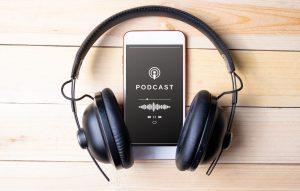Looking for physical items amongst a cluttered desk or table is always frustrating. That same aggravation occurs when trying to find an important file or email on your computer, phone, or other devices. Thankfully, with some organization tips, you can reign in the digital clutter and save yourself time and frustration while finding the data you need.
Use Categories
Start by deciding on the categories of files and emails you’re dealing with. For example, you may have a photo category with subcategories of family, pets, business, etc. Or you may group them by client or supplier. Figure out the categories that make the most sense for your needs.
Make and Use Digital Folders
Using these categories and subcategories, create matching folders in your email browser and the places you save your documents. If you have subcategories, organize those as folders within the broader category folders. Next, use them by sorting existing files and emails appropriately and then continue to use them going forward.
Naming Guidelines
Librarians have long used naming conventions to organize all the material under their purview. They use the same concepts with digital collections – and so can you. Develop a naming structure that makes sense for your needs. For example, photos can be named by the place and date, and documents can be given names that indicate their topic and/or client. Whatever makes the most sense for you.
Automate Email Organization
As you can imagine, trying to keep up with organizing your email can get laborious if you do it manually. The great news is that you can automate it! Most email services allow you to set up rules determining the location for emails as they come in based on who sent it or subject matter. So, emails from your boss or important clients get automatically filtered, and you can see and address them more quickly.
Purge
Because digital items don’t take up physical space, it’s really easy to let them accumulate. Start small by deleting blurry photos, duplicates, poorly lit or poor quality photos and videos, any digital files that are no longer meaningful to you. You may be surprised how much storage space you free up, which can save you money.
Back-Up Everything
Now that your digital life is under control, back up everything to the cloud. Google Drive is a great way to do this. And set up a schedule to ensure everything stays backed up. Hardware can fail without warning, but as long as your files are backed up, you won’t lose much time if that happens.
Digital clutter can feel overwhelming and may cause stress. In addition, spending time searching isn’t the best use of time. Using these tips, you can get your digital files under control and be more efficient.









